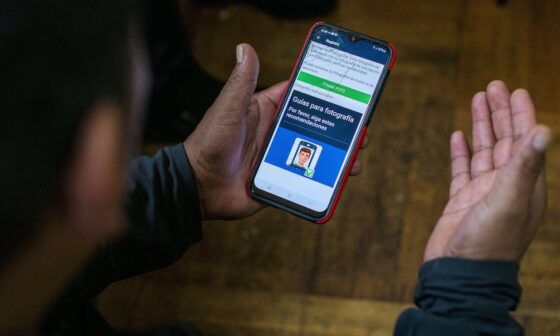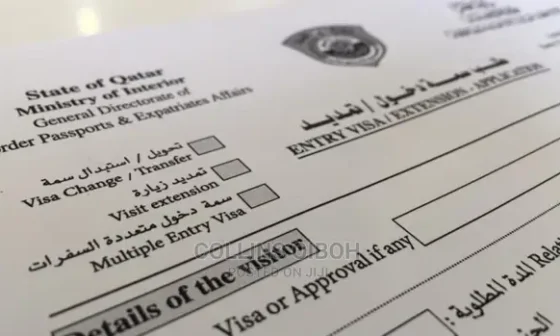Have you heard of the National Interest Waiver (NIW), which is a subtype of the EB-2 green card? I have seen a lot of people travel with this form of immigration system. It might interest you to know that the national interest waiver is the easiest subtype of the EB-2 green card. Stay with me cause this guide has all you need. Here, I will explain what a national interest waiver is, how to apply, the legal requirements, EB-2 NIW evidence, the cost of applying for a national interest waiver, and the advantages and disadvantages of a national interest waiver.
What Is a National Interest Waiver?
A national interest waiver, also called EB-2 NIW, is a method of obtaining work-based U.S. lawful permanent residence (a green card) without an employer as the sponsor, which can be used if you are engaged in work that benefits the United States economy, education system, health, or some other aspect of society. The national interest waiver is available under the EB-2 immigrant category. Through the national interest waiver, certain people with skills and abilities in the fields of science, the arts, business, or certain other professions may self-petition for a green card. Through the national interest waiver, the requirements that you have a full-time job offer and that you have a U.S. employer sponsor are waived.
Key Points
- A National Interest Waiver (NIW) allows certain skilled individuals to obtain a U.S. green card without an employer sponsor, provided their work benefits the U.S. economy, education system, health, or other societal aspects.
- To qualify for an NIW under the EB-2 category, applicants must either have an advanced degree or exceptional ability, supported by specific documentation such as degrees, professional licenses, or letters of recognition.
- The application process for an NIW involves filing Form I-140 with USCIS and may require additional steps like adjustment of status or consular processing, with varying costs and processing times.
What Is the Cost of a National Interest Waiver?
The first payment to be made for the national interest waiver is 1,043,900 naira ($715), which is for Form I-140. Once I-140 is approved, the path forward will vary depending on where the applicant is living. If the national interest waiver applicant is already living in the United States, they will need to pay the filing fee for Form I-485, called the “application for adjustment of status. The next payment they need to make is the payment for the medical exam, which can range anywhere from 292,000 naira ($200) to 584,000 naira ($400) and the 124,100 naira ($85) fee to have their biometrics taken. For a more concise look:
| Expense | Amount in Naira | Amount in USD |
|---|---|---|
| Form I-140 | 1,043,900 | $715 |
| Form I-485 (if in the U.S.) | 730,800 | $500 |
| Medical Exam | 292,000 – 584,000 | $200 – $400 |
| Biometrics Fee | 124,100 | $85 |
| Consular Processing Fee | 503,000 | $345 |
| Premium Processing Fee | 4,095,300 | $2805 |
If they are currently living abroad, they will need to apply via consular processing. For employment-based green cards, the consular visa processing fee is 503,000 naira ($345).
What Are the Legal Requirements for a National Interest Waiver?
You must first qualify for the EB-2 category to be eligible for a national interest waiver. You can do this by having either an advanced degree or exceptional ability. Also, you must also certify a set of criteria related to your area of expertise.
To fit the advanced degree requirements, you need a master’s, PHD, or other post-baccalaureate degree such as a bachelor’s degree or 5 years of experience. To fit the exceptional ability in your field of requirement, you would need to assemble extensive documents, including at least three of the following:
- A license to practice your profession or certification for your profession or occupation.
- Evidence that you have commanded a salary or other remuneration for services that illustrate your exceptional abilities.
- An official academic record showing that you have a degree, diploma, or similar award from a college, school, university, or other institution of learning relating to your area of exceptional ability.
- Letters documenting at least 10 years of full-time experience in your occupation.
- Recognition of your achievements and significant contributions to your industry or field by your peers, government entities, or business organisations.
- Membership in one or more professional associations, usually the one that requires achievement in order to be a member
According to USCIS, other evidence with comparable results can be accepted but it is required that the applicant first show that the evidence from the above categories is unavailable or inapplicable. To obtain the national interest waiver, you must prove that your employment will greatly benefit the United States, so even if you choose to apply based on an advanced degree in practice, you will likely have to be highly skilled in your field as well.
Read Also: HOW TO APPLY AND GET STUDY ABROAD PROGRAMS IN 2024-2025
Moving on, after establishing that you have an advanced degree or exceptional ability, you also need to satisfy all parts of the three-prong test established in a case called Dhanasar, 26 I&N Dec. 884 ( AAO 2016). This involves proving that:
- You are in a good position to advance your proposed work.
- The work you propose to do in the U.S. has substantial merit and national importance.
- On balance, it would be in the national interest to grant you a waiver of the usual employment and labour certification requirements.
What is the Eb-2 National Interest Waiver Processing Time?
The processing time for Form I-140 can take anywhere from 10.5 to 26.5 months, depending on where the applicant is located. Once the applicant has received the notice of approval, the next thing they will need to check is the U.S. Department of State’s visa bulletin to see if a green card is available.
The applicant may begin the green card process once they have confirmed that the visa is available. If they are applying within the United States, they will need to submit Form I-485. The waiting time usually takes more than 2 years, according to USCIS but it varies depending on your location.
Advertisements
If the applicant is located abroad ( via consular processing), the processing time will likely range between 4 and 6 months, though with COVID-related delays, these time frames may be extended. If a permanent resident card is available immediately, the applicant can submit an I-140 along with the green card application, which might help save time.
How can I Apply for the EB-2 National Interest Waiver?
In this section, I will take the best step when applying for the EB-2 National Interest Waiver. The steps include the following:
#1. Consult With an Immigration Lawyer
The first thing to do as an applicant for EB-2 NIW is to consult with an immigration lawyer. The immigration lawyer will help you do the following:
- Review your credentials and provide you with an analysis regarding the likelihood of approval of your case.
- Review your background and immigration history to determine whether there may be a better option for you to get your green card.
- Applying for a National interest waiver can be extremely complicated. Each NIW case requires a detailed strategy for how to prove that you satisfy each of the new requirements. The duty of this experienced immigration lawyer is to help you develop a strategy to successfully apply for your EB-2 national interest waiver.
#2. File With Form I-140 With USCIS
Form I-140 is also known as the immigration petition for alien workers. This is the initial form that must be filed with the USCIS to apply for a green card under EB-2 NIW.
Your immigration lawyer will prepare a detailed cover letter explaining your case and eligibility for a national interest waiver, along with your form I-140. In addition, all the documents in support of your eligibility for a national interest waiver will be included with Form I-140.
#3. Either Adjustment of Status or Visa Processing
Once form I-140 and a visa number are approved and available to you, the next step is to undergo immigrant visa processing or do an adjustment of status. I will explain the difference between the two below:
Advertisements
Adjustment of status
- adjustment of status is when someone adjusts from a non-immigrant status to a lawful permanent resident status.
- The adjustment of status takes place within the U.S.
- It is done by filing Form I-485 with USCIS
- In order to do this, you must be lawfully present in the United States in a valid non-immigrant status.
- If the priority date is current at the time of filing Form I-140, you may concurrently file for Form I-485 adjustment of status along with Form 1-140.
Immigrant Visa processing
- It is when someone applies for an immigrant visa at a consulate or embassy outside of the United States.
- immigrant processing visa is done when someone is not lawfully present in the United States with a valid non-immigrant status.
- You must attend a visa interview at a consulate abroad as part of the process of immigrant visa processing.
- Immigrant visa processing is done by electronically filing DS-260 with the Department of State.
- Once the interview is successful, you will receive your immigrant visa within a few days.
- Once you enter the United States on your immigrant visa, you are officially a U.S. lawful permanent resident.
What Is Being Waived for This Type of Eb-2 Green Card?
Every EB-2 category green card process requires an employer to sponsor someone by offering a permanent job and also testing the labour market to see if there are any qualified U.S. workers who are available for the job instead. This is called PERM labour certification.
The government agency reviewing the case can reject or deny it if it finds that the employer identified a suitable U.S. worker but did not offer the job to the person. With the national interest waiver, USCIS declares that the person’s work is so important to the United States that there is no need to give first priority to a U.S. worker. It will thus waive or set aside the requirements of employer sponsorship and labour certification.
What Are the Benefits of a National Interest Waiver?
There are many benefits to migration through the EB-2 national interest waiver. The three most important include the following:
#1. Ability to Self-Petition
As mentioned before in this article, one of the benefits of this is that you can self-petition. This simply means that you want to find yourself in the struggle of finding a U.S. employer that is willing to sponsor your immigrant petition. Another benefit of this is that, through the national interest waiver, you can avoid the labour certification process altogether.
#2. Speed
Another benefit of this is that it is faster than the other types of EB-2. The other types may require the employer to undergo various recruitment activities and must also obtain an approved labour certificate from the Department of Labor. This process can take several months to achieve. In EB-2 National Interest Waiver, there is no need to go through the labour certification process. You can file your immigrant petition directly, which saves a lot of time.
#3. No Need to Prove Extraordinary Ability
While you do have to show demonstrated achievements in your field and that your work will benefit the U.S., you do not have to prove you have extraordinary ability as required in the EB-1 category. Therefore, some people including me, believe that a national interest waiver is easier to obtain.
Disadvantages of a National Interest Waiver
You need a lot of documentation to prove your merit and approval, so preparing this documentation may take some time. Also, USCIS agents have a great deal of discretion in deciding whose work is in the national interest.
Another issue in the past was that the expedited 15-day adjudication of the petition in return for a supplemental fee, known as premium processing, was not available from the USCIS in this category. Therefore, the processing time could be much longer than for an I-140 filed under the EB-1 category, in which premium processing is available.
Although Congress authorised USCIS to expand premium processing to include NIW cases in 2020, it wasn’t until 2022 that USCIS finally got around to implementing it. The premium processing timeline for NIW cases is 45 calendar days. The supplemental fee for this, starting February 26, 2024, is 4,095,300 naira ($2805).
What Is the EB-2 NIW Evidence?
In order to meet the NIW criteria, the applicant needs to gather relevant proof, which will be attached to form I-140. In this section, I will outline the guiding principles for compiling evidence and the list of documents the applicant needs to build their case.
#1. Guidance for National Interest Waiver
The USCIS officers didn’t list any supported documents and they make their decisions on a case-by-case basis on a daily basis. That being said, they provided some guiding principles that might prove useful.
For example, to determine if the applicant is well positioned to execute their plan, officers may consider a range of different factors, including:
- Skills
- Educational levels
- Applicable knowledge
- Official record displaying success in the applicant’s field
- A well-drawn-out plan outlines the path forward
- Any records showing progress made towards accomplishing the applicant’s goal.
The following can be considered when they want to determine if the applicant meets the third criterion: whether bypassing the PERM certification requirements would be beneficial to the United States:
- Whether the United States urgently requires the applicant’s skill set.
- Whether it would be practical for the applicant to secure a job offer or labour certification given the nature of their situation.
- Whether the United States will benefit from the applicant’s work, regardless of its impact on U.S. workers in a similar field.
#2. Evidence of National Interest Waiver
With those guidelines in mind, you can start to gather evidence specifically for the national interest waiver. The evidence might include:
- Academic research
- Pertinent data
- Letters written by experts in a relevant field
- new article or other media demonstrating the applicant’s impact on their field and the national importance of their endeavour
- Complete a project plan showing how the applicant will advance the goals of their endeavour.
- Any concrete proof of contributions to the field, which might include awards, conference papers, patents, or any other form of acknowledgement,.
- Degrees and resumes
- Evidence of startup capital, letter of intent, and proof of contracts ( for entrepreneurs)
The applicants should also make sure they are building a narrative addressing the 3 NIW criteria. The applicant, in addition to the document listed above, should also gather evidence showing they have either an advanced degree or exceptional ability. Let’s take a look at what I mean below.
Evidence for an advanced degree
If you are applying under this category, then you need to have at least one of the following:
- A diploma and transcripts showing that you have obtained the equivalent of a bachelor’s degree with letters from employers showing 5 years of post-bac experience. The letter should demonstrate there was an improvement in your skill set.
- A diploma and transcripts showing that you have obtained the equivalent of a master’s degree or higher.
Evidence For exceptional ability
This is a bit more complicated and you need to have at least 3 of the following:
- Proof of payment of services related to the applicant’s ability.
- A certification obtained by the applicant to practice their profession.
- An official academic record showing they have obtained a certificate, diploma, or degree from a university or school related to their exceptional ability.
- Letters showing 10 years of full-time work experience in their given field.
- Official acknowledgement by peers, government agencies or related organisations of the applicant’s contribution to the field.
- Other relevant proof of eligibility
What Is the Difference Between National Interest Waiver (NIW) and National Interest Exception (NIE)?
The NIW and NIE are two distinct concepts with different purposes. A National Interest Waiver is a provision within employment-based immigration that allows certain foreign nationals to obtain permanent residency without the need for a job offer or labour certification if their work is deemed to be in the national interest waiver of the United States. A national interest exception is a discretionary waiver offered by the U.S. government allowing certain individuals to be exempt from certain travel restrictions.
What Is the Acceptance Rate of the EB-2 National Interest Waiver?
You may question your chances of success given the high standards. One of the criteria is that your work must be in the national interest of the United States. However, securing an EB-2 NIW may be easier than you think because over 80% of applicants get approved annually.
How Many Citations and Publications Are Sufficient to Meet the Eb-2 Requirements?
There is no specific minimum publication or citation requirement; rather, it is determined by the USCIS on a case-by-case basis.
Conclusion
In the case of evidence for exceptional ability, it isn’t enough to just present a document; the evidence should be framed in such a way that it strengthens the applicant’s argument. If you have an advanced degree, you should strongly consider taking the advanced degree route because it is less complicated than exceptional ability and requires at least one document, unlike exceptional ability, which requires at least 3. This guide has provided a detailed guideline on how to apply for EB-2. All you need to do is follow it gradually and correctly and you are good to go.
Related Articles
- Top International Study Scholarships In 2024-2025 (+ Application Tips)
- TOP MASTER’S DEGREE PROGRAMS TO STUDY ABROAD IN 2024-2025
- HOW TO APPLY AND GET STUDY ABROAD PROGRAMS IN 2024-2025
- TOP STUDY ABROAD SCHOLARSHIPS IN 2024-2025
References
Advertisements






